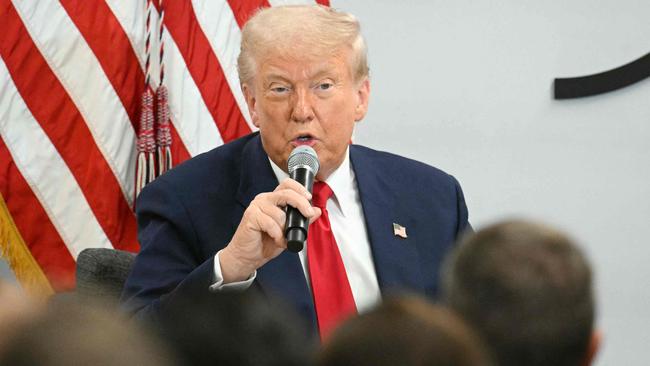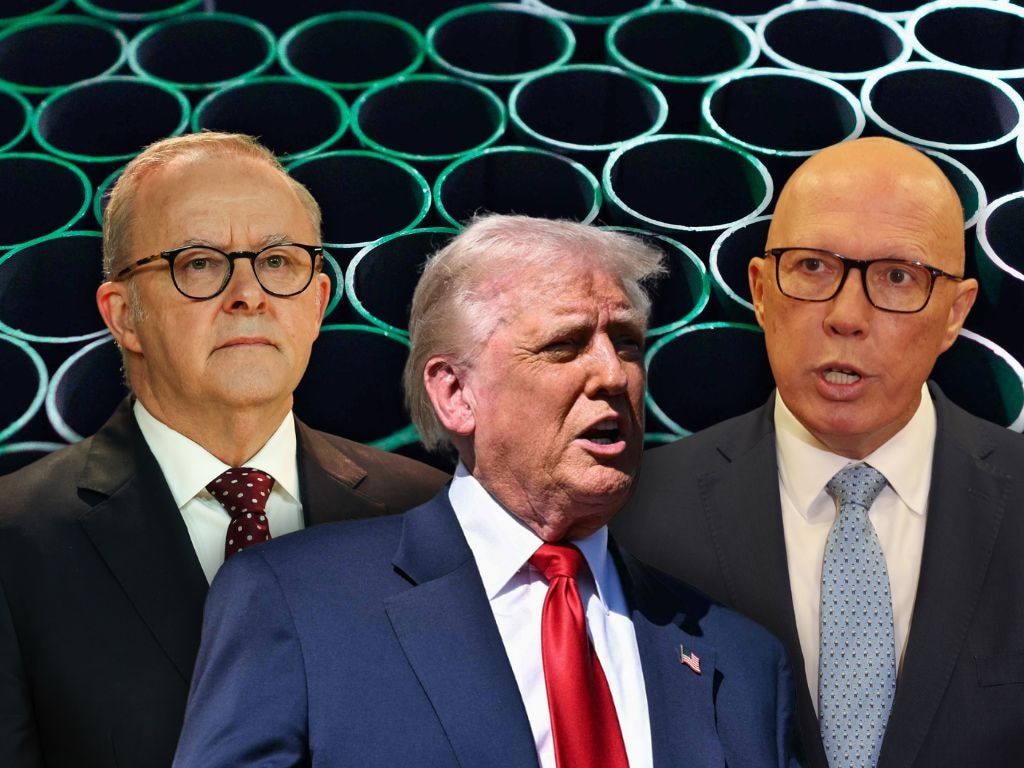
Australia’s inability to secure an exemption to Donald Trump’s steel and aluminium tariffs was the grim but inevitable outcome of a president determined to implement his tariffs across the board at all costs. Houdini could not have escaped these tariffs.
The political fight over whether or not this outcome was a diplomatic failure by Australia ignores the fact that Trump was hell bent this time around on rejecting all pleas for exemptions.
Peter Dutton points out that Labor’s Anthony Albanese, Penny Wong and ambassador Kevin Rudd are hardly the dream team to persuade a Republican president to exempt Australia.
But the truth is that if Liberals Malcolm Turnbull, Julie Bishop and ambassador Joe Hockey were still in power, they would also have failed to secure the same exemption they won in 2018. Why? Because Trump Mark II is a fundamentally different beast when it comes to tariffs than he was in his first term.
In Trump’s first term, tariffs were a measure to be used sparingly with America’s friends given special exemptions. With Trump’s steel and aluminium tariffs in 2018, Australia won an exemption alongside Canada, Mexico, Argentina, Brazil and South Korea. This time none of these countries were exempted despite waging their own major diplomatic campaigns. Of these, Canada and Mexico are now in a full blown trade war with Trump. So those who argue Australia had any serious chance of being the only nation in the world to turn Trump on these tariffs are playing election politics rather than reflecting reality.
If any single player beyond Trump put a nail in the coffin of any exemptions it was Trump’s trade adviser Peter Navarro who accused Australia of being one of the countries that “abused” tariff exemptions granted during Mr Trump’s first term.
“So what the lesson from the first Trump tariffs has been is that exemptions to anybody are counter-productive. They don’t work for the American people,” Navarro said in an argument that obviously helped to persuade Trump.
The depressing thing about the lack of exemptions is that it shows Trump has zero regard for alliances, history and free trade deals. Given the way he has treated Canada, a fellow member of the intelligence five-eyes group, his treatment of Australia should come as no surprise.
Albanese was right to slam Trump’s decision as “completely unjustified” and “against the spirit of our two nations’ enduring friendship” not least because, unlike Trump’s other tariff victims, Australia normally runs a trade surplus with the US.
The government is also right to keep dialogue open and to keep pushing for an exemption down the track because not only did the last exemption take nine months, but Trump is showing with his on-off tariff announcements on Canada and Mexico that anything is possible in the future.
The biggest concern for Australia with Trump’s transactional approach to alliances is not trade but defence. With Australia’s defence spending currently languishing at just 2 per cent of GDP when Trump and his senior pentagon aides are calling for all of America’s allies to lift defence spending to at least 3 per cent of GDP, it is just a matter of time before Trump puts direct pressure on Australia to take action.
So far Albanese is refusing to lift defence spending beyond its current modest projected increase from 2 per cent of GDP to 2.3 per cent over a decade. But this is increasingly unsustainable given current world events, Trump’s demands and the need to fund the AUKUS nuclear submarines. The risk for Australia if it does not do more to shoulder responsibility for its own security is that Trump will leverage what we want as a bargaining chip. The obvious bargaining chip is AUKUS and the US promise to sell at least three Virginia-class nuclear submarines to Australia in the early 2030s. For Trump to hold the AUKUS submarine promise as a potential ransom for greater defence spending is not as outlandish as it once appeared given his disregard for Australia over tariffs. These are difficult times for Australia as it seeks to navigate the excesses of Trump Mark II. The tariff outcome was a bad start and there is no guarantee that this bump in the relationship will be a one off.






